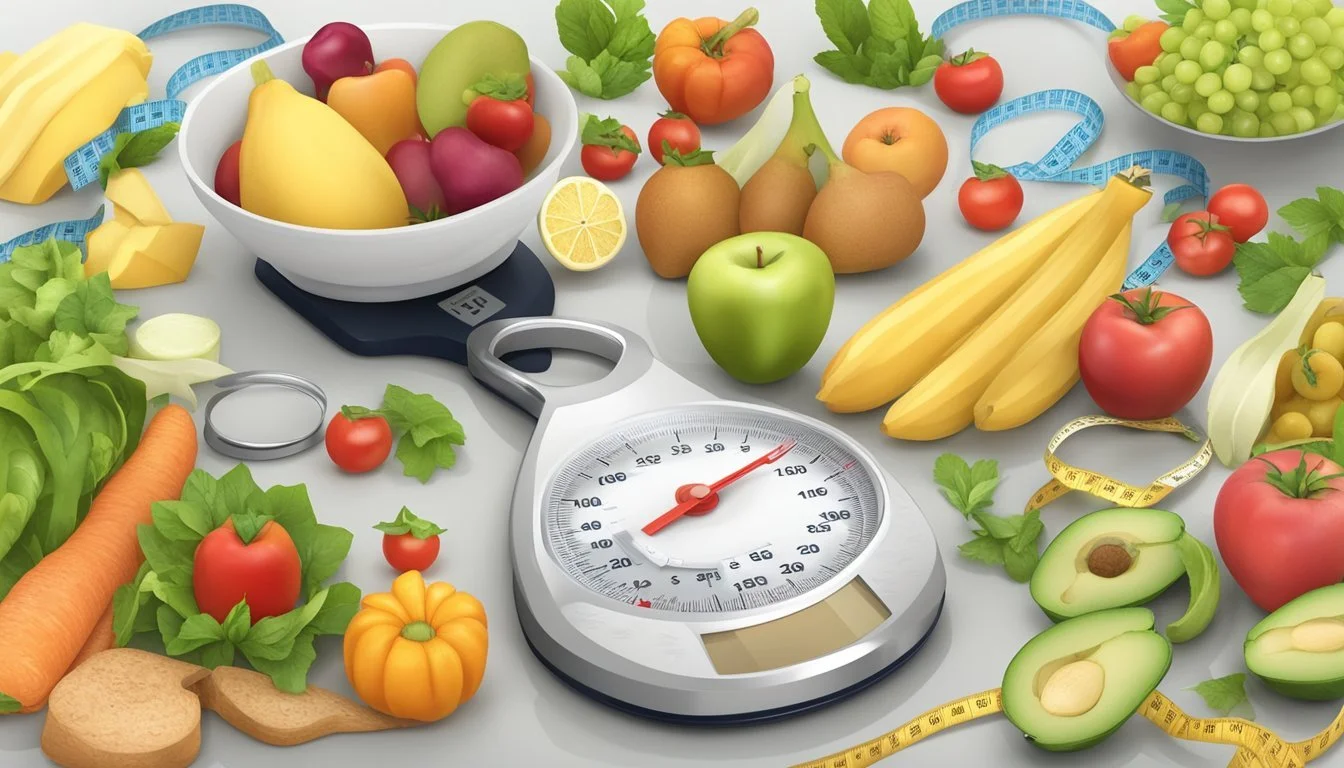Does the Dr. Nowzaradan Diet Work for Pre-Bariatric Surgery Weight Loss?
Analyzing Its Effectiveness
Dr. Nowzaradan, commonly known as Dr. Now, has become a renowned figure in the world of weight loss surgery due in part to his connection with the television series "My 600-lb Life". He is especially noted for advocating a strict, low-calorie diet to his patients, a plan that is intended to facilitate rapid weight loss, particularly in individuals who are significantly overweight. This diet is typically used to prepare patients for bariatric surgery, aiming to reduce the risks associated with the procedure and improve its outcome.
The Dr. Nowzaradan diet, or the Dr. Now diet as it is often called, emphasizes a low intake of calories and carbohydrates. It is designed to elicit quick weight loss by creating a substantial calorie deficit, which is critical for patients who may be facing immediate health risks due to their weight. An additional goal of the diet is to instill healthy eating habits in patients that can persist post-surgery, ensuring a successful long-term weight loss and maintenance strategy.
While bariatric surgery offers a platform for significant and rapid weight reduction, it is not a standalone solution to obesity. For this surgery to have enduring success, patients are often required to lose a certain amount of weight beforehand, thus proving their commitment to the lifestyle changes needed post-surgery. As up to 30% of patients may regain weight after the procedure, a pre-surgery diet like Dr. Now's can be instrumental in preparing patients for the lifestyle they must adopt to maintain their results over the long term.
Understanding Bariatric Surgery
Bariatric surgery encompasses various procedures aimed at supporting weight loss in individuals with obesity, particularly when other methods have not yielded results.
Bariatric Procedures Explained
Bariatric surgery, also known as weight loss surgery, is intended for individuals who are classed as morbidly obese, typically defined as having a Body Mass Index (BMI) of 40 or above, or 35 and above with obesity-related health conditions. The U.S. Food and Drug Administration (FDA) approves several types of procedures, each with specific mechanisms and outcomes:
Gastric Bypass: The most common method where the stomach is divided into a small upper pouch and a larger bottom pouch, with the small intestine reconnected to both.
Gastric Banding: Involves an inflatable band placed around the upper portion of the stomach, creating a smaller stomach pouch.
Sleeve Gastrectomy: A significant portion of the stomach is removed, leaving a banana-shaped stomach that is substantially smaller.
Biliopancreatic Diversion with Duodenal Switch: A more complex procedure that reduces the size of the stomach and bypasses a large portion of the small intestine.
Each method aims to reduce food intake and nutrient absorption, thus facilitating weight loss.
Preoperative Weight Loss Requirements
Before undergoing bariatric surgery, patients may be required to lose a certain amount of weight preoperatively. This serves multiple purposes:
Reducing Surgical Risk: Preoperative weight loss can decrease the risk of complications.
Assessing Commitment: Demonstrating weight loss prior to surgery can serve as evidence of an individual's readiness to comply with postoperative dietary changes.
Improving Outcomes: Initial weight loss can improve the efficacy of the surgery by reducing the size of the liver and abdominal fat, making the procedure less challenging and potentially more successful.
A tailored preoperative diet, often supervised by a medical professional like Dr. Nowzaradan, is typically low in calories and carbohydrates. While the specifics can vary, it generally restricts an individual's daily caloric intake, sometimes to around 1,200 calories per day, to meet these preoperative goals.
The Dr. Nowzaradan Diet Methodology
The Dr. Nowzaradan Diet is characterized by a rigorous calorie cap and a focus on nutrient-rich foods, specifically designed for patients seeking significant weight loss prior to bariatric surgery.
Caloric Limits and Nutrient Balance
Dr. Nowzaradan's diet plan enforces an extreme calorie restriction, typically setting a limit at 1,200 calories per day. This limit is meant to induce rapid weight loss by creating a significant calorie deficit. However, despite the low calorie intake, the plan emphasizes a balance of nutrients to support overall health.
Protein: A critical component, with an emphasis on lean sources to maintain muscle mass.
Carbohydrates: Limited in quantity, the plan suggests low-glycemic choices to manage blood sugar levels.
Fiber: Foods high in fiber are encouraged to aid digestion and satiety.
Vegetables: A variety of vegetables are recommended, providing essential nutrients and low-calorie bulk.
This strict calibration of calories and nutrients is aimed at helping patients reduce their metabolic rate safely.
Food Choices and Restrictions
The diet significantly limits the intake of certain foods while promoting whole, nutrient-dense options.
Permitted Foods:
Lean Protein: Chicken breast, turkey, fish, and tofu.
Vegetables: Leafy greens, cruciferous vegetables, and a selection of other low-carb options.
Fruits: Limited portions of low-sugar fruits like berries and apples.
Whole Foods: Unprocessed grains and legumes in moderation for fiber and nutrient intake.
Restricted Foods:
Foods high in sugar and empty calories are prohibited.
High-calorie fats and oils are minimized.
Processed and high-carb foods are generally off the table.
The emphasis on whole foods and the avoidance of sugar-laden and processed foods are core to the Dr. Nowzaradan diet methodology. The goal is to encourage weight loss by prioritizing satiety and nutritional value within the 1200 calorie threshold.
Sample Diet Plan
The following sample diet plan is built to reflect the 1200-calorie regimen, focusing primarily on high protein, low carbohydrate, and low-fat food choices to facilitate weight loss while preparing for bariatric surgery.
Typical Meal Structure
A typical meal structure in Dr. Nowzaradan's diet plan consists of three main meals each day, sometimes with one snack, to meet nutritional needs without exceeding the calorie limit.
Breakfast:
Protein source (e.g., egg whites)
Low-carb vegetable (e.g., spinach)
Low-fat dairy (optional)
Lunch:
Lean protein (e.g., grilled chicken or turkey breast)
Salad with leafy greens and low-carb vegetables
Low-fat dressing (measured portion)
Dinner:
Protein source (fish, such as salmon or tuna in water)
Steamed low-carb vegetables (e.g., broccoli, carrots)
Healthy fats (e.g., a small amount of nuts or cheese)
Suggested Food Options
The diet emphasizes incorporating a variety of nutrient-dense foods while maintaining a low-calorie count. Below are specific food options that align with the dietary guidelines:
Proteins:
Chicken
Turkey sausage
Fish
Egg whites
Greek yogurt
Vegetables:
Broccoli (steamed)
Spinach
Carrots (steamed or raw)
Salad greens
Dairy:
Low-fat milk
Low-fat cheese
Providing these clear food options ensures patients adhere to a nutrient-filled, calorie-controlled diet, offering a diverse menu within the boundaries of a low-calorie, high-protein, and low-carb framework.
Health Considerations and Safety
When considering the Dr. Nowzaradan Diet for pre-bariatric surgery weight loss, it is critical to understand the health and safety implications of such a restrictive nutritional regimen. This section focuses on the potential risks of rapid weight loss and the nutritional challenges that may arise when adhering to a highly restrictive diet.
Risks of Rapid Weight Loss
Rapid weight loss, often a requirement before bariatric surgery, can present various risks. A high-protein, low-calorie diet like Dr. Nowzaradan's aims to facilitate quick weight loss which can help reduce the volume of the liver, making surgery safer and easier. However, losing weight too quickly can lead to gallstones, electrolyte imbalances, and malnutrition. The drastic reduction in calorie intake can also affect the levels of the hunger hormone, ghrelin, which may result in increased appetite post-surgery if not managed properly.
Adherence Challenges and Nutritional Adequacy
The strict nature of Dr. Nowzaradan's diet can create adherence difficulties for patients. The diet mandates a severe restriction in calories to about 1,200 per day, emphasizing nonfat dairy products and avoiding foods high in carbohydrates and fats. Patients must strictly follow the list of foods to avoid—which typically include sugary, fried, and high-carb foods—to maintain the required calorie deficit for preoperative weight loss. Ensuring nutritional adequacy is challenging, given the limited calorie intake; therefore, careful planning and sometimes supplementation are needed to meet all of an individual's micronutrient needs.
Lifestyle and Dietary Adjustments
To achieve pre-bariatric surgery weight loss, adhering to a specific diet and making substantial lifestyle changes is essential. These adjustments are designed to create a sustainable path toward weight loss and to ensure safety during and after the surgery.
Habits for Long-Term Success
Long-term success in pre-bariatric surgery weight loss hinges on the development of consistent, healthy habits. Patients are encouraged to consume low-calorie, nutritious foods that support weight loss while providing essential nutrients. A focus on high-fiber foods helps with satiety and digestion, making it easier to adhere to a lower calorie intake. Including healthy foods like lean proteins, vegetables, and whole grains is crucial. Refined carbohydrates and high-calorie processed foods are typically reduced or eliminated to meet the strict calorie goals.
Managing Expectations and Variations
Understanding the diet's parameters and setting realistic goals can significantly influence a patient's ability to stick with the program. Dr. Nowzaradan's diet, often referenced on the show "My 600-lb Life," recommends a strict low-calorie diet that requires determination to maintain. Typical caloric intake is around 1,200 calories per day, which necessitates careful meal planning and an understanding of calorie density. While individual needs may vary, the diet's core principle remains: significant calorie reduction to ensure effective pre-surgery weight loss.
Foods and Substances to Avoid
The Dr. Nowzaradan diet necessitates the exclusion of certain high-calorie and sugar-loaded foods, as well as unsuitable drinks and alcoholic beverages. These restrictions are critical for reducing calorie intake and preparing patients for successful weight loss surgery.
High-Calorie and High-Sugar Foods
The diet strictly limits foods that are high in calories and sugars. These include:
Candy: Such as lollipops, chocolate bars, and jelly beans.
Starchy Vegetables: Particularly white potatoes, which are higher in calories compared to other vegetables.
Sweetened Products: Honey, syrup, and sugar in any form should be struck off the grocery list.
Snacks: Popcorn, especially the types coated with butter or sugar, can rapidly increase calorie intake.
Unsuitable Drinks and Alcohol
Beverages play a substantial role in the diet plan, with specific drinks to avoid:
Alcoholic Beverages: Alcohol is high in calories and can impede weight loss; therefore, it should be avoided.
Soda and Sugar-Laden Juices: Any drink high in sugar, including regular soda and fruit juices, is not recommended.
Sugar-Free Alternatives: While these may seem like a safer choice, the diet typically discourages their consumption due to potential cravings they may induce.
Supplements and Additional Nutrition
The Dr. Nowzaradan Diet, due to its restrictive nature, necessitates consideration for sufficient nutrient intake. Supplements play a crucial role in preventing deficiencies, and proper hydration is essential for overall health and weight loss efficacy.
Vitamin and Mineral Supplementation
Patients following the Dr. Nowzaradan Diet typically consume a limited variety of foods, which can lead to gaps in essential nutrients. Vitamins and minerals are pivotal to ensure the body functions optimally. A multi-vitamin supplement might be recommended to supply nutrients that are otherwise hard to obtain in adequate quantities through the diet alone. Additionally, calcium and vitamin D supplements are often advised, as dairy intake can be low with restricted calories. It is important to have these supplements approved by a healthcare provider to avoid any contraindications with the patient's individual health needs.
Hydration and Fluid Intake
Hydration is paramount for patients on the Dr. Nowzaradan Diet. An adequate intake of water helps in maintaining metabolic rate and in the prevention of dehydration—a risk associated with low-calorie diets. While milk may provide necessary hydration and nutrients like calcium, it should be consumed in moderation due to its calorie content. Patients are generally encouraged to drink at least 64 ounces of fluid daily, predominantly from water. Including beverages like non-starchy vegetable juices can also contribute to hydration while providing some fiber and nutrients, but monitoring carbohydrate intake remains key.
Alternative Dietary Considerations
When adapting the Dr. Nowzaradan diet for pre-bariatric surgery weight loss, patients must consider their dietary restrictions and lifestyle choices. Options like vegetarian and vegan diets or ways to manage food allergies can be integrated while still adhering to the low-calorie, low-carb framework of the program.
Vegetarian and Vegan Options
Vegetarians and vegans can follow the Dr. Nowzaradan diet by focusing on protein-rich, low-fat, and low-carb foods within their dietary preferences. Low-fat cottage cheese and a variety of non-starchy vegetables like spinach, broccoli, and kale are excellent choices. They may also include moderate amounts of fruit, being mindful of the sugar content. Snacks can consist of sliced cucumbers with hummus or small portions of nuts and seeds. It is essential to ensure adequate protein intake, which can come from lentils, tofu, and tempeh.
Managing Food Allergies
For individuals with food allergies, the Dr. Nowzaradan diet can be modified to exclude specific allergens while still maintaining the goal of weight loss. They should focus on low-fat and low-carb options that do not trigger their allergies. For instance, if someone is allergic to gluten, whole-wheat toast should be replaced with gluten-free alternatives. Meal planning will revolve around safe foods such as meats, fish, and non-starchy vegetables, carefully reading labels to avoid hidden allergens. It may be beneficial to work with a dietitian to identify substitute foods that provide equivalent nutritional value without compromising the diet's effectiveness.






